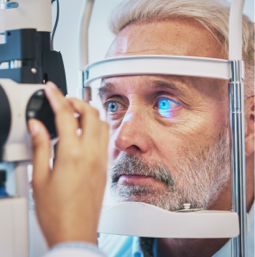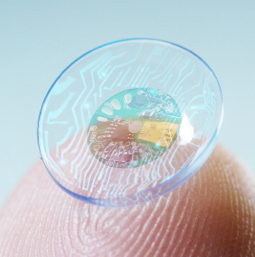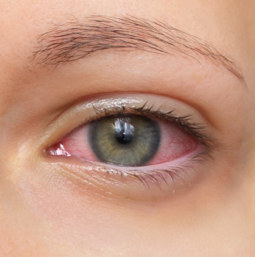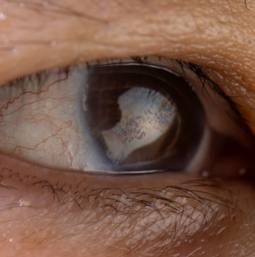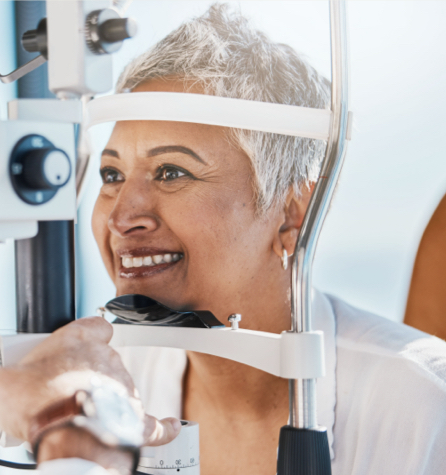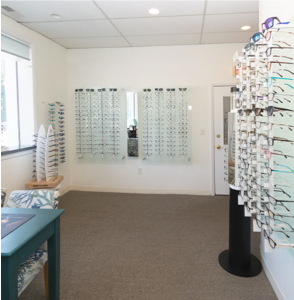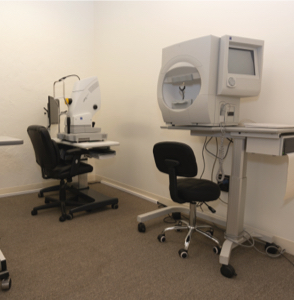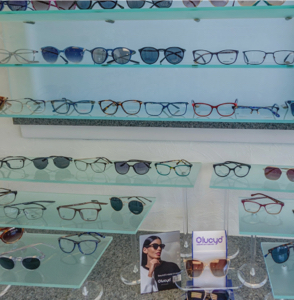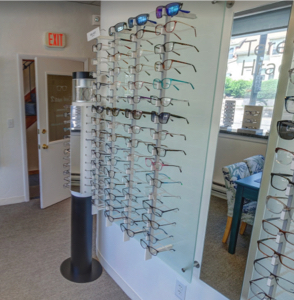If you’ve noticed a decline in your eyesight since your last eye exam, you’re not alone. Many adults experience changes in their vision over time. Understanding the potential reasons behind this can help you take proactive steps to manage and address the issue.
Some common factors that can contribute to worsening eyesight include: aging, digital eye strain, uncorrected vision conditions, health conditions, lifestyle, environmental factors, and genetics.
Aging
Aging is one of the most common reasons for deteriorating eyesight. As we age, the structures within our eyes change, leading to conditions such as presbyopia, cataracts, and age-related macular degeneration (AMD).
- Presbyopia: This condition typically starts to affect people in their 40s and results in difficulty focusing on close objects. It’s a natural part of aging and is usually corrected with reading glasses or multifocal lenses.
- Cataracts: Clouding of the eye’s lens, leading to blurry vision. Cataracts are common in older adults and can be treated with surgery.
- Age-related macular degeneration (AMD): This affects the macula, the central part of the retina, leading to a loss of central vision. There are treatments available, but early detection is crucial.
Digital Eye Strain
In our digital age, prolonged use of computers, smartphones, and other screens can lead to digital eye strain. Symptoms include dry eyes, headaches, and blurred vision. To alleviate these issues:
- Follow the 20-20-20 rule: Every 20 minutes, take a 20-second break to look at something 20 feet away.
- Ensure proper lighting and reduce screen glare.
- Use artificial tears to keep your eyes moist.
Uncorrected Vision Conditions
If you already wear glasses or contact lenses, an outdated prescription can lead to eye strain and worsening vision. Regular eye exams ensure that your prescription is up-to-date. Additionally, conditions like astigmatism, myopia (nearsightedness), and hyperopia (farsightedness) need to be accurately diagnosed and corrected.
- Myopia (Nearsightedness): This is a common vision condition where close objects are seen clearly, but distant ones appear blurry. Myopia occurs when the eye is too long or the cornea is too curved, causing light to focus in front of the retina instead of on it. This condition often starts in childhood and can progressively worsen with age. Corrective lenses such as glasses or contact lenses can help, and in some cases, refractive surgery may be an option.
- Hyperopia (Farsightedness): Unlike myopia, hyperopia causes distant objects to be seen more clearly than close ones. This happens when the eyeball is too short or the cornea has too little curvature, leading to light focusing behind the retina. Farsightedness can cause difficulty with tasks such as reading or sewing. Glasses or contact lenses often correct this by altering the way light rays enter the eyes, and laser eye surgery can also be considered depending on the case.
- Astigmatism: This is due to an imperfection in the curvature of the eye, either on the cornea or the lens, leading to blurry or distorted vision at all distances. Astigmatism occurs when the surface of the eye or the lens inside the eye has mismatched curves, preventing light from focusing properly on the retina. Corrective lenses can adjust for these curves, and toric contact lenses or refractive surgery are other possible treatments. Regular visits to an eye care professional are essential to diagnose and correct astigmatism with the appropriate lenses or treatment.
Health Conditions
Certain health conditions can adversely affect your vision:
- Diabetes: Diabetic retinopathy, caused by damage to the blood vessels in the retina, is a serious complication of diabetes.
- Hypertension: High blood pressure can lead to hypertensive retinopathy, affecting the retina’s blood vessels.
- Autoimmune diseases: Conditions like rheumatoid arthritis and lupus can cause inflammation in various parts of the eye, leading to vision problems.
Lifestyle Factors
Several lifestyle factors can contribute to declining eyesight:
- Poor diet: A diet lacking essential nutrients, such as vitamins A, C, E, and minerals like zinc, can affect eye health. Eating a balanced diet rich in fruits, vegetables, and omega-3 fatty acids supports good vision.
- Smoking: Smoking increases the risk of cataracts, AMD, and other eye conditions.
- Lack of sleep: Insufficient sleep can lead to eye strain and dry eyes.

Environmental Factors
Exposure to harmful environmental factors can also impact your eyesight:
- UV light: Prolonged exposure to ultraviolet (UV) rays from the sun can damage your eyes. Wearing sunglasses that block 100% of UV rays can protect your eyes.
- Blue light: Blue light from digital screens can contribute to eye strain and potentially impact sleep patterns. Blue light filters or glasses can help mitigate this.
Genetics
Your genetic makeup can play a significant role in your vision health. If your family has a history of eye diseases like glaucoma, cataracts, or macular degeneration, you may be at higher risk. Regular eye check-ups can help in early detection and management of hereditary eye conditions.
What Can You Do?
While some factors affecting your eyesight are beyond your control, there are several proactive steps you can take:
- Regular eye exams: Schedule comprehensive eye exams annually or as recommended by your eye care professional.
- Healthy lifestyle: Maintain a balanced diet, exercise regularly, avoid smoking, and manage underlying health conditions.
- Protect your eyes: Wear sunglasses, use proper lighting when reading or working on screens, and follow the 20-20-20 rule.
- Stay informed: Keep up with the latest information and advancements in eye care.
Steps Towards Healthy Vision
Understanding the reasons behind your worsening eyesight is the first step towards addressing the issue. By staying informed and taking proactive measures, you can preserve your vision and maintain your overall eye health. If you notice any significant changes in your vision, consult with an eye care professional to receive the appropriate care and treatment.
Remember, your eyes are your windows to the world. Taking good care of them ensures that you continue to see the world clearly and vividly. To learn more about vision care, book an eye exam with Rock optiX in Millis, MA today!



